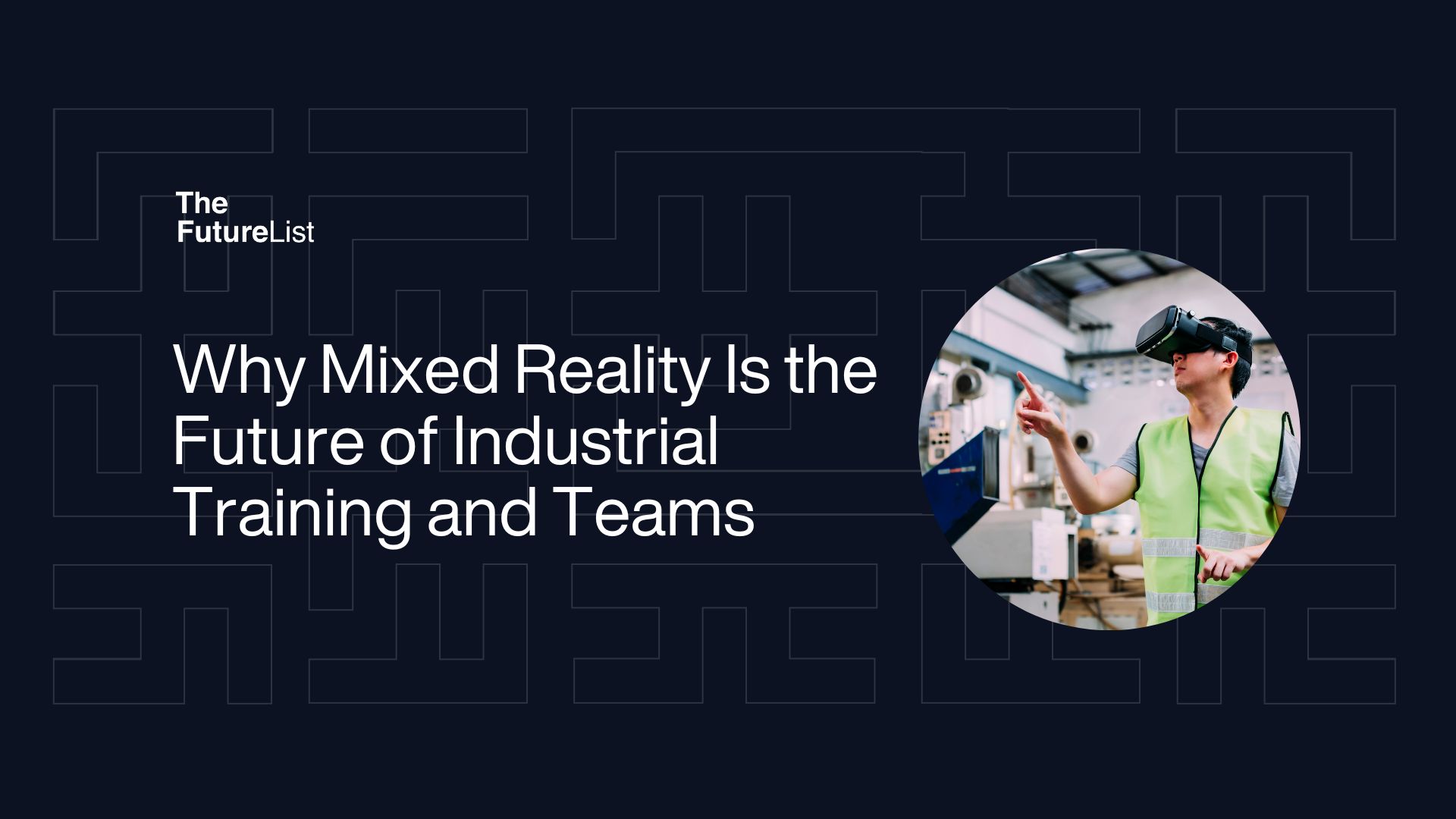
Why Mixed Reality Is the Future of Industrial Training and Teams
By Eric Kamande
Training has long been the quiet backbone of industrial operations. Whether on the factory floor, in field service, or inside maintenance bays, effective knowledge transfer determines how smoothly work gets done and how well organisations scale. But as machines grow more complex, product lifecycles shorten, and skilled labour becomes harder to retain, traditional training methods are hitting their limits.
In many industrial settings, onboarding technicians or upskilling teams still rely on physical manuals, classroom sessions, or shadowing experienced workers. These approaches are time-consuming, difficult to scale across geographies, and often bottlenecked by the availability of a handful of experts.
Now, a shift is underway not just toward digitising training content, but toward reimagining it as an interactive, real-time layer embedded into daily operations.
Why Industrial Training Needs a Rethink
Industrial companies worldwide face converging pressures: aging workforces, increasingly complex tools and systems, and persistent shortages in hands-on technical roles.
- In the EU, nearly 40% of manufacturing employers struggle to find workers with the right skills (CEDEFOP).
- In Southeast Asia, demand for skilled technicians in automotive and precision engineering is projected to grow 20–25% by 2028, driven by automation and regional manufacturing shifts.
- In India, 70% of manufacturing employers cite inadequate training infrastructure as a barrier to efficiency (NSDC).
The challenge is universal: train faster, at scale, with less reliance on in-person experts. This is where immersive, adaptable training solutions capable of simulating real systems, running across devices, and updating dynamically are gaining traction.
Case Study: frontline.io and the Rise of Embedded Simulation
Founded in 2020 and based in Tel Aviv, frontline.io blends extended reality (XR) with operational training. By converting 3D CAD files into interactive digital twins, it enables teams to learn, rehearse, and troubleshoot processes in an immersive, context-aware environment.
The key difference? frontline.io isn’t just delivering training content, it’s integrating knowledge directly into workflows. The platform works on mobile devices, tablets, and headsets, with no coding required to build or update modules.
Its $10 million Series A funding round (April 2025) is fueling global expansion, particularly in industries with large service footprints like aerospace, energy, and industrial equipment.
Why It’s Working
frontline.io’s growth reflects a broader shift: knowledge as infrastructure. By combining immersive interfaces, real-time analytics, and flexible content delivery, training systems can now scale in unprecedented ways.
Some of the benefits seen across deployments include:
- Improved retention and safety: Global research, including a PwC multi-market study, found XR-based training delivered up to 275% higher confidence in applying new skills compared to traditional formats.
- Faster resolution cycles: Remote assistance features allow global field teams to diagnose and resolve equipment issues with less delay and fewer site visits.
- Local adaptability: The no-code nature of the platform enables localised instruction sets, supporting teams in multiple languages and compliance environments.
A New Layer of Industrial Intelligence
As the industrial world digitises, platforms like frontline.io hint at the future of operations: training isn’t a phase, it’s a continuous, embedded function of equipment itself.
By giving teams access to interactive guidance and updatable simulations at the point of work, organisations can reduce their dependency on shrinking pools of experts and adapt more quickly to new tools, products, and procedures.
In an era of decentralised manufacturing and just-in-time systems, training well and fast is becoming a strategic infrastructure. Mixed reality may be the key to turning industrial know-how into a truly global asset.
Get innovation insights from The FutureList weekly. Subscribe to our newsletter here
Categories
- Agritech
- Artificial Intelligence
- Biotech
- Blockchain
- Climate Tech
- Data Infrastructure
- Edtech
- Events
- Fashion
- Fintech
- Healthtech
- Infrastructure
- Innovation Memos
- Innovation Scout Program
- Insight
- Insurtech
- Machine Learning
- Martech
- Mobility
- Music and Media
- Partner Offers
- Perks
- Procurement
- Proptech
- Retailtech
- Ridehailing
- Ridesharing
- Robotics
- Space Aviation
- Supply Chain
- Talent
- Telecoms
- Uncategorized
- Venture Capital
- Wastetech
- Women In Tech
Recent Posts
- Innovation Memo with Alle-AI, combining top AI tools for seamless content creation.
- Why Mixed Reality Is the Future of Industrial Training and Teams
- Space Cleanup, Satellites, and the Future of Earth Infrastructure
- Innovation Memo with AgriVest Africa: Connecting investors to high-yield farm projects.
- Let Doctors Doctor: How AI is Rewriting Healthcare Admin